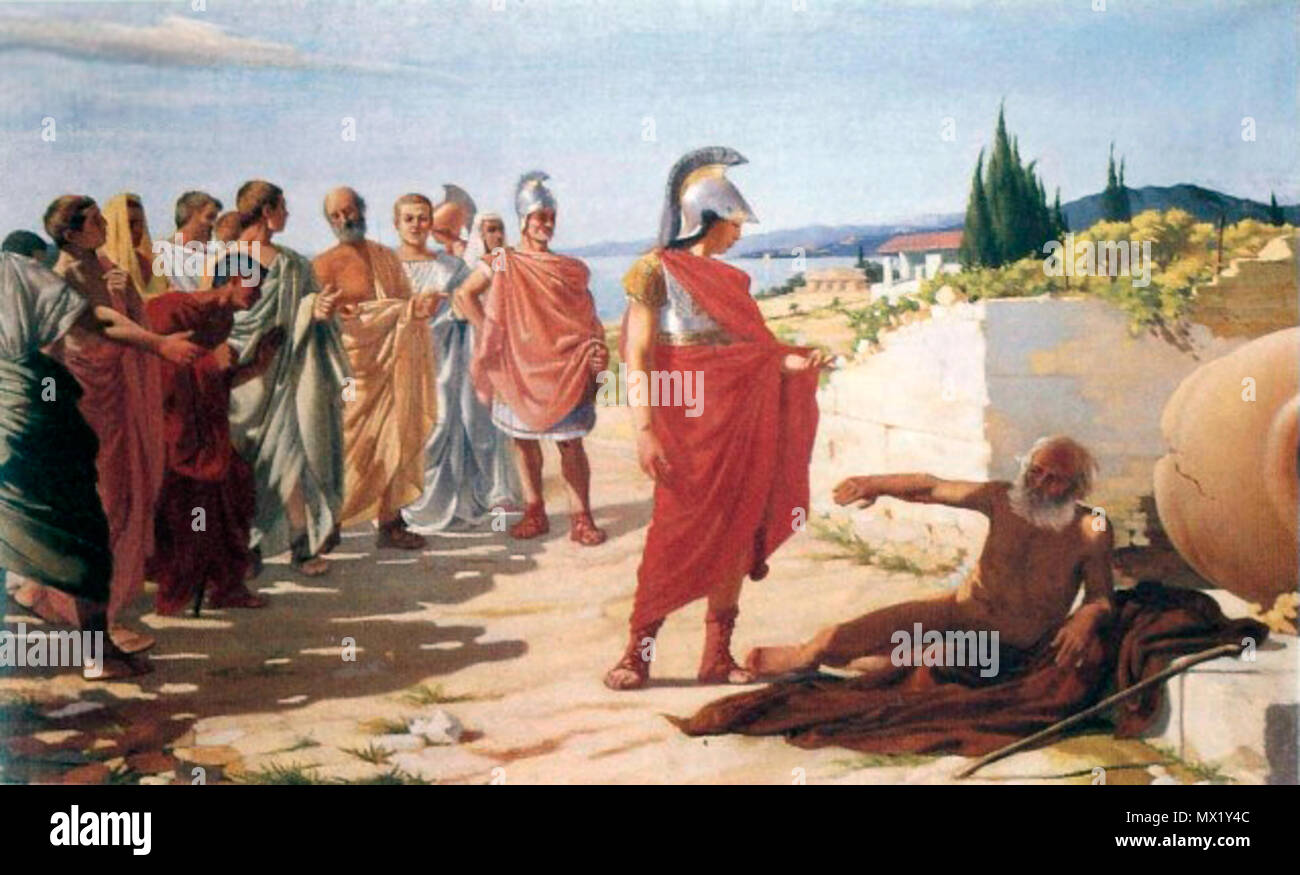
It is clearly mentioned, Diogenes is a harsh critic of Plato, regularly disapproving of Plato’s metaphysical thoughts and theoretical ethics. Like Antisthenes, Diogenes believed in Socrates’ philosophy and rejection of personal possessions and social status. Antisthenes had no liking for Diogenes but the pupil wouldn’t leave him and continued to believe his every word or preaching. Though Antisthenes had no liking for Diogenes, he continued to follow him and eventually forced him to accept him as his student. Diogenes was attracted by the ascetic teaching of Antisthenes, a student of Socrates, who had been present at Socrates’s death. We will never know the real truth but whatever reasons it had happened, the act had forced him to relocate to Athens.ĭiogenes was the antisocial philosopher with the guts to reject all the norms of standard society. Some believe, he was falsely embroiled in the currency scam. Mostly, it is said he had received an oracle to adulterate the coinage. The son of Hicesias, a banker it is still uncertain whether he or his father had to face the punishment of banishment for adulteration of the currencies of the country. He was born in Sinope (modern-day Sinop, Turkey), an Ionian colony on the Black Sea in 412 or 404 BCE.

If you think about those three truths from a modern-day perspective, more than 2,000 years later, they are still very true.The exceptional nature of Diogenes’ life generates difficulty for determining the authenticity of the facts mentioned in references. We come to this world empty-handed and we leave it empty-handed.All the money wealth acquired on Earth stays on Earth.Even the best doctors can’t save you from death.Alexander explained each of his wishes in the following manner: His followers were surprised and asked him to explain his unusual requests. His hands should be let loose, hanging outside the coffin for all to see.The wealth he has accumulated (money, gold, precious stones, etc.) should be scattered along the procession to the cemetery.The best doctors should carry his coffin.When Alexander the Great was dying in 323 BCE, he had three wishes: In a world that often emphasizes wealth, power, and status, the story of Alexander and Diogenes is a reminder of the importance of simplicity, spirituality, and a focus on what truly matters. The enduring relevance of this meeting and its messages is a testament to the enduring nature of human values and the universality of existential truths.

His dying wishes also reveal a recognition of the impermanence of earthly things and the inevitability of death. Leaving, he is said to have remarked, “If I were not Alexander, I would want to be Diogenes.” Despite his reputation as a world ruler, Alexander recognized the wisdom in Diogenes' words and expressed admiration for the philosopher. He came to realize that his ambitions and desires were not the ultimate purpose of life and that there was a deeper spiritual reality that transcended material wealth and power.Īlthough Alexander’s attendants took umbrage at Diogenes’ rudeness to their king, Alexander himself was not displeased. Alexander began to question his own identity and the role he played in the world. This encounter sparked a deep curiosity in Alexander about the nature of human existence and the meaning of life. Diogenes, who was enjoying the warmth of the autumn sun, answered, “Stand aside to stop blocking the sun.” This abrupt response, showing his utter contempt for the money, power and prestige. In the most famous exchange of the meeting, Alexander the Great asked Diogenes whether there was anything he could do for him. It is a reminder of the tension between worldly power and spiritual values, and the limitations of wealth and status in the face of mortality. The meeting between Alexander the Great and Diogenes is a powerful moment in history and has had a lasting impact on Western art and culture.


 0 kommentar(er)
0 kommentar(er)
